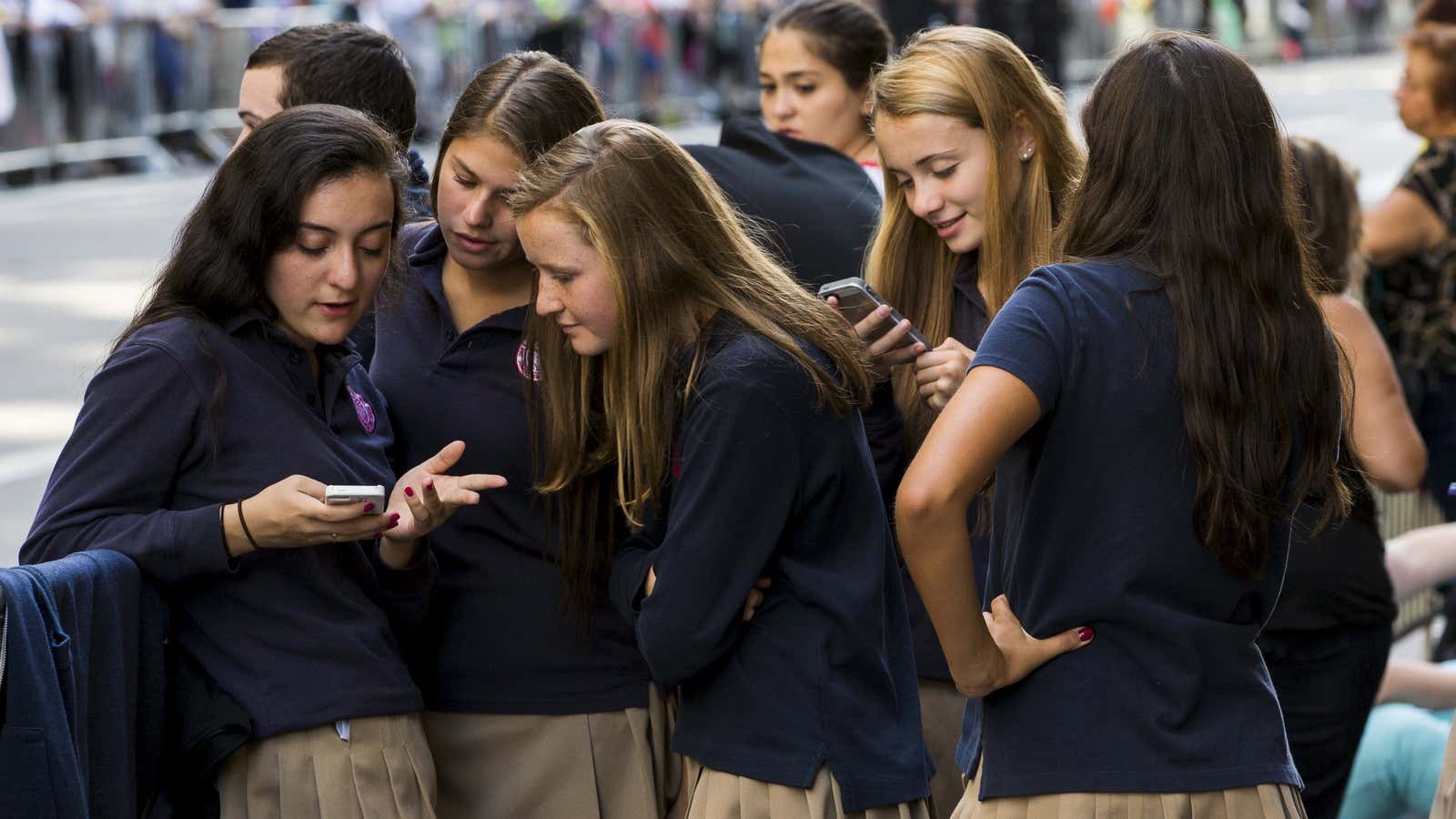Communicating in blink-and-miss snaps and 140-character tweets is weakening actual interaction among adolescents.
In a sample of 487 teens from a typical public school, those who spent more time communicating with their boyfriends or girlfriends through texting or social media were less adept at managing conflicts or sharing problems and standing up for themselves in real life a year later, according to a new study in the Journal of Research on Adolescence.
“In romantic relationships that are very close and very intimate, people tend to enjoy all kinds of positive aspects. But knowing how to express needs, talk about problems and reach compromises is important too,” said co-author Mitch Prinstein, director of clinical psychology at UNC Chapel Hill. ”A lot of communication is occurring in public forums, so while you’re communicating, you’re also thinking of how this would play out for a worldwide audience.”
As more kids choose to text or use Snapchat and Instagram, the forums of interaction are evolving and so are relationships. “With electronic communications, there are fewer interpersonal cues,” Jacqueline Nesi, the lead author of the study and a doctoral student in clinical psychology in UNC’s College of Arts and Sciences, told Futurity. “You’re not seeing facial expressions or using nonverbal communications. So, the predominant use of social media may limit the opportunity to practice in-person conversations that are crucial for adolescents, particularly boys, to develop important skills.”
To study their behaviors in romantic relationships, researchers gave the teens a questionnaire to determine their level of relationship skills and how much time they spend communicating with their partners online versus traditional communications like face-to-face or over the phone. A year later, they revisited the same questions and found that proportionally higher online engagement was associated with lower relationship skills.
“A lot of people have been very skeptical, if not critical about children’s use of the internet. There’s nothing bad about the internet in general and there’s a lot of benefits. But are there specific types of things that are good or bad?” Prinstein said. The study isn’t suggesting adolescents be prohibited from using the internet. But the research opens the door on more studies to determine what aspects of the web are harmful and which are beneficial.
“I wouldn’t say that any particular type of social media is better or worse,” Nesi said. But she does think some platforms may give teens more opportunity to connect. “For example, Facetime or Skype, where adolescents can see each other and make eye contact, might allow for more practice with certain interpersonal skills than something like Facebook messenger, which is primarily text-based.”
Technology-based interactions may be eroding relationship skills because teens may have limited opportunities to learn or practice complex social skills. Even though both boys and girls got worse at stopping fights, understanding their partner’s point of view, or explaining how they felt about the relationship, boys fared worse than girls.
Boys tended to have higher conflict management deficits than girls. In same-sex relationships, confrontational behavior is more common for boys—romantic relationships are where boys learn compromise strategies. With more communication via screens, boys are getting fewer opportunities to engage in-person conversations.
